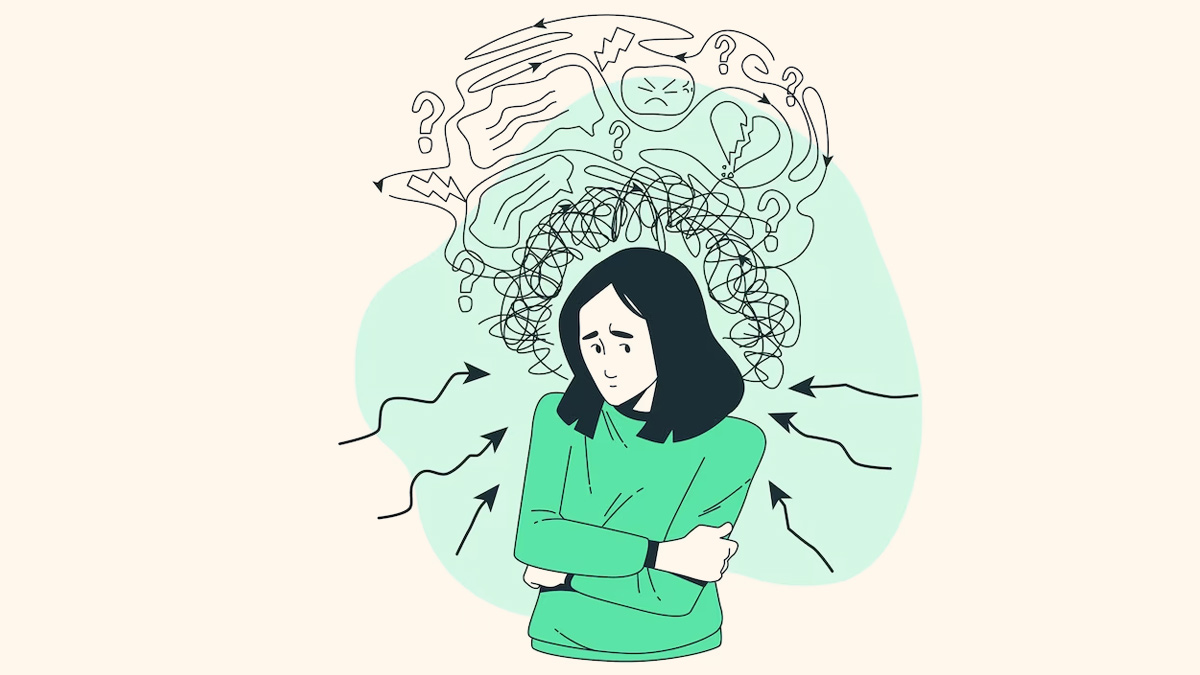
Do you know psychosis is a mental health condition characterised by an impaired relationship with reality? It is marked by symptoms such as hallucinations, delusions, and disorganised thinking, which can severely affect a person's ability to function in daily life. Understanding the symptoms and treatment options for psychosis in adults is crucial for managing this complex condition.
Table of Content:-

Symptoms of Psychosis
The symptoms of psychosis can vary in severity and presentation but generally include the following:
Hallucinations
- Auditory Hallucinations: Hearing voices or sounds that are not present. These are the most common types of hallucinations in psychosis.
- Visual Hallucinations: Seeing things that are not there, such as people or shapes.
- Olfactory and Gustatory Hallucinations: Smelling or tasting things that are not present.
- Tactile Hallucinations: Feeling sensations on the skin that have no physical cause.
- Paranoid Delusions: Believing that others are plotting against, spying on, or trying to harm them.
- Grandiose Delusions: Having an inflated sense of self-importance or believing in special powers or abilities.
- Somatic Delusions: Believing that there is something physically wrong with the body despite evidence to the contrary.
- Disorganised Thinking and Speech
- Loose Associations: Rapidly shifting from one topic to another without a clear connection between thoughts.
- Tangentiality: Giving unrelated or barely related answers to questions.
- Incoherence: Speech that is difficult or impossible to understand, often referred to as "word salad."
- Agitation: Excessive movement or restlessness.
- Catatonia: A lack of movement and communication, or bizarre movements and behaviour.
Also read: Yoga For Mental Health: Here’s How Practising Surya Namaskar Daily Can Benefit You
Causes of Psychosis
Psychosis can be triggered by a variety of factors, including, schizophrenia, schizoaffective disorder, bipolar disorder, and severe depression. Drugs such as LSD, methamphetamine, cocaine, and excessive alcohol can induce psychotic episodes. Brain tumours, infections of the brain (such as encephalitis), and certain neurological disorders. Severe psychological stress or trauma can precipitate psychotic episodes. A family history of psychosis or mental illness can increase the risk.
Treatment Options for Psychosis
Treatment for psychosis typically involves a combination of medication, therapy, and support services. Early intervention is crucial for better outcomes.

Medications
Antipsychotics: These are the mainstay of treatment and help to manage symptoms such as hallucinations and delusions. Common antipsychotics include risperidone, olanzapine, quetiapine, and aripiprazole.
Also read: Here’s How Strength Training Can Improve Your Mental Health: 5 Exercises To Try
Cognitive Behavioral Therapy (CBT): Helps individuals challenge and change their distorted thinking patterns and develop coping strategies.
- Family Therapy: Involves the family in the treatment process to provide support and education about the condition.
- Psychoeducation: Educating patients and their families about psychosis, its symptoms, and treatment options.
- Case Management: Provides assistance in accessing services, managing medications, and coordinating care.
- Vocational Rehabilitation: Helps individuals with psychosis to gain skills and support to return to work or education.
- Peer Support: Involves connecting with others who have experienced psychosis for shared support and encouragement.
- Lifestyle and Self-Care:
- Healthy Lifestyle: Encouraging a balanced diet, regular exercise, and sufficient sleep can help improve overall well-being.
- Stress Management: Techniques such as mindfulness, meditation, and yoga can help manage stress levels.
- Avoiding Substance Use: Steering clear of drugs and alcohol, which can exacerbate symptoms.
Psychosis is a serious condition that requires comprehensive treatment and support. Understanding the symptoms can lead to early diagnosis, which is crucial for effective management. With appropriate treatment, including medications, therapy, and support services, many individuals with psychosis can lead fulfilling lives. If you or someone you know is experiencing symptoms of psychosis, seeking professional help is essential for proper diagnosis and treatment.
How we keep this article up to date:
We work with experts and keep a close eye on the latest in health and wellness. Whenever there is a new research or helpful information, we update our articles with accurate and useful advice.
Current Version
